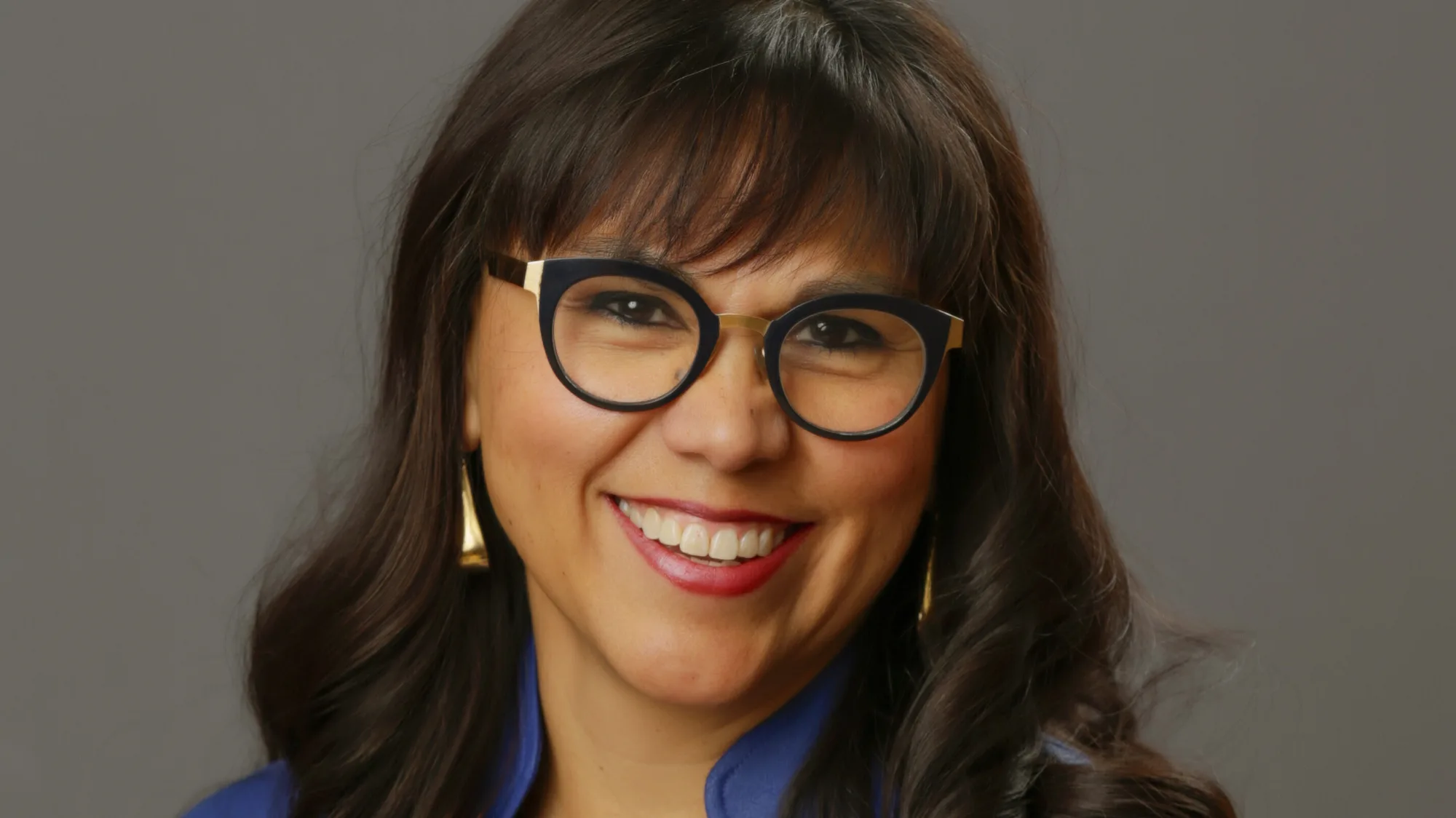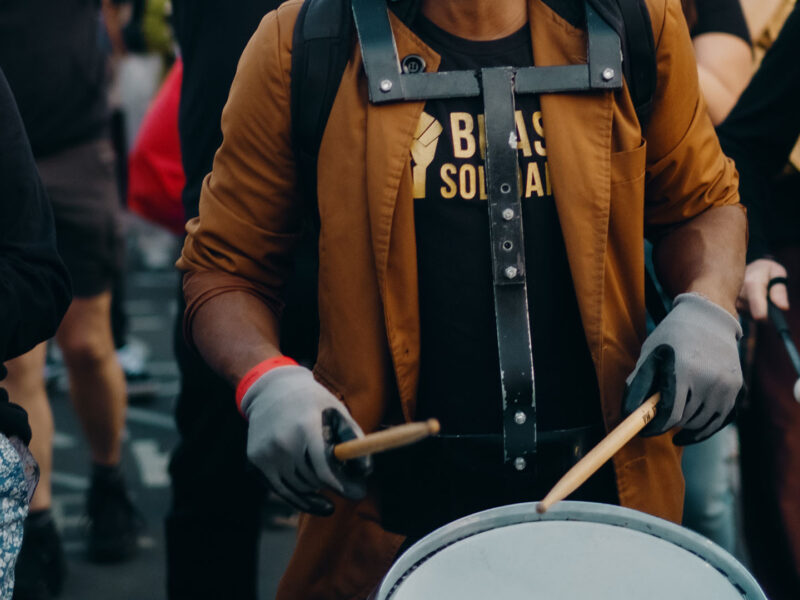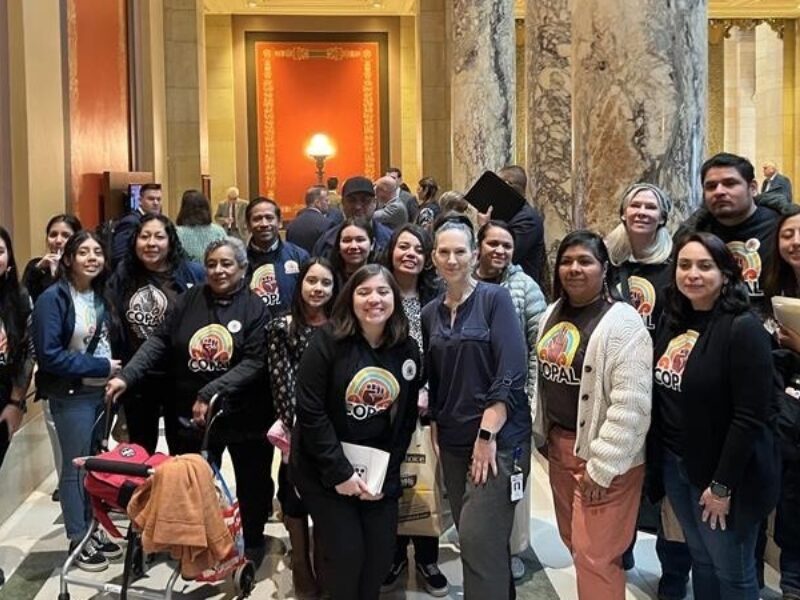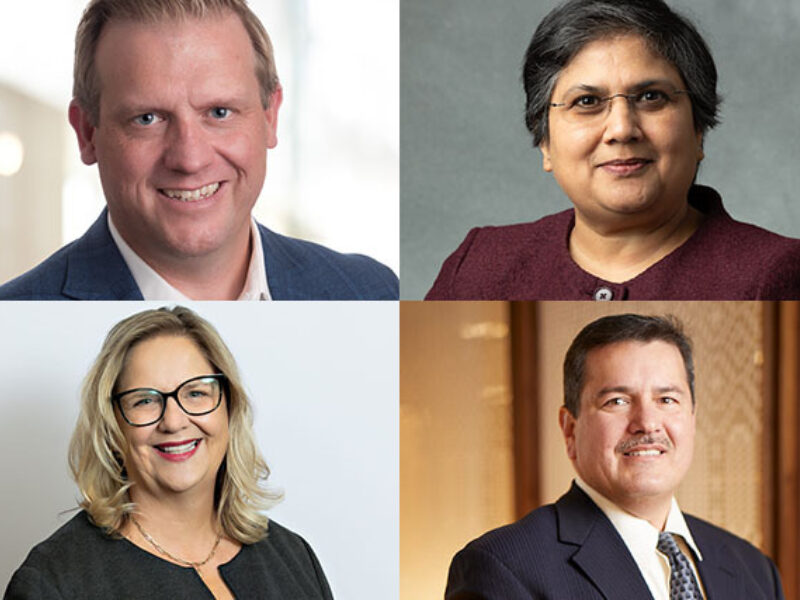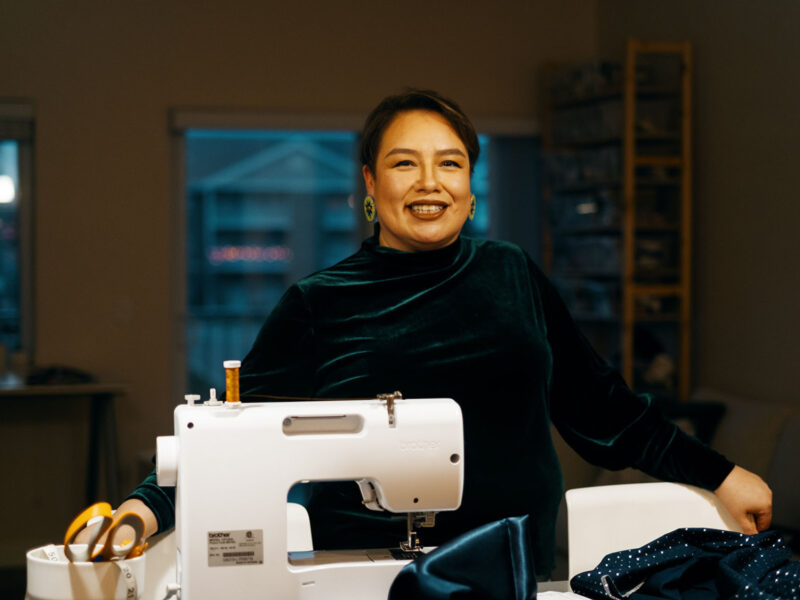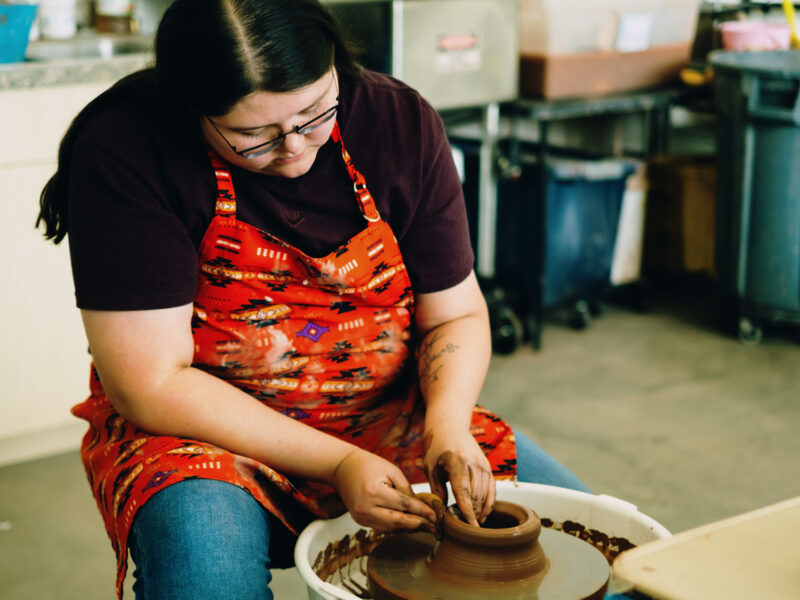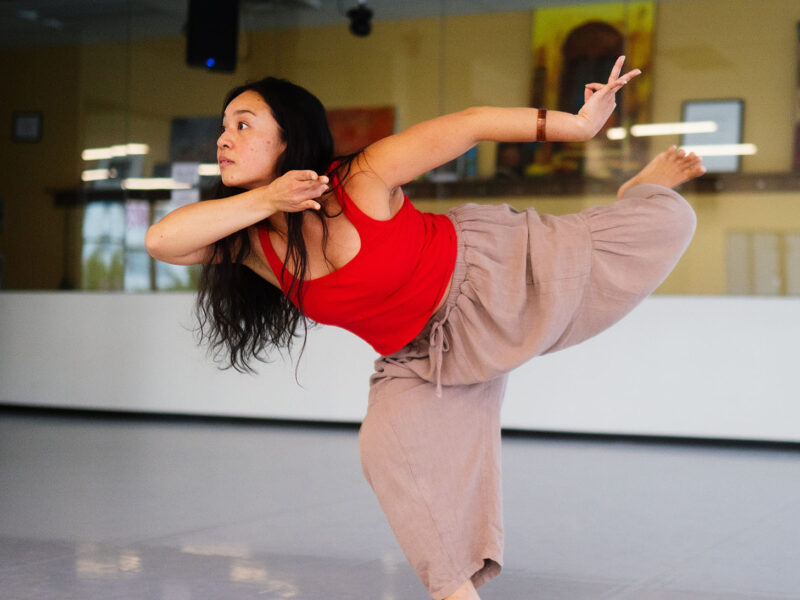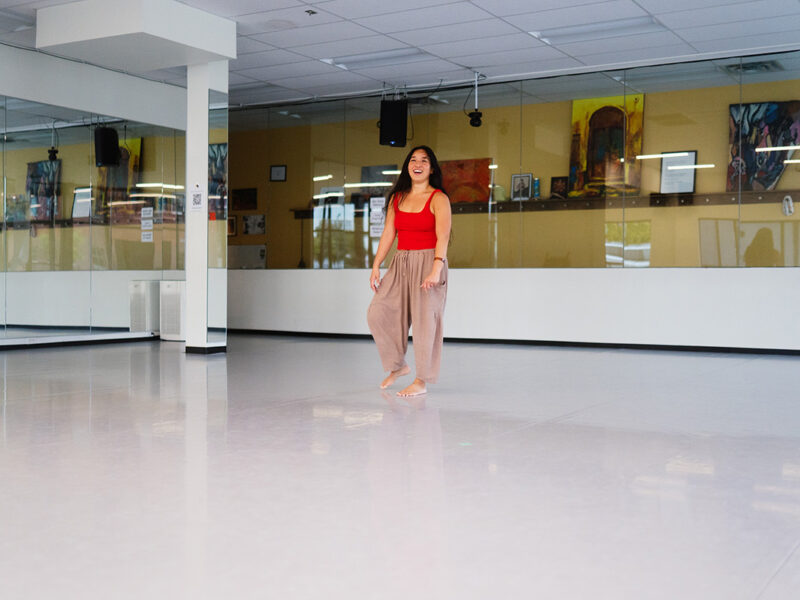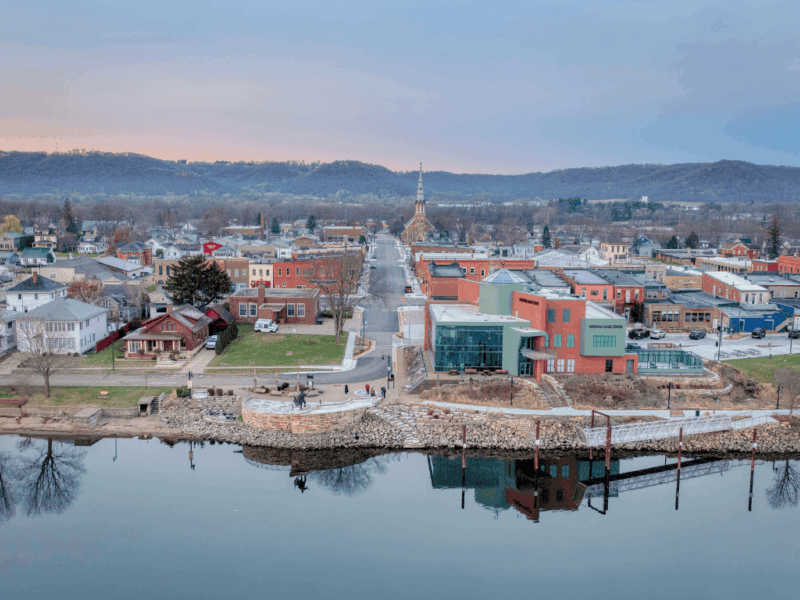Inspired by Family, Gloria Perez Engages Young Women in Leadership.

Family drives Gloria Perez’s passion for helping people.
As a child, she learned about the field of human service from her father, a social worker, and from her grandparents - immigrants, who moved to the United States to create new economic opportunities for their family.
Their passion and drive inspired Gloria. While attending Macalester College, she took advantage of volunteer opportunities that sparked what would become a long career in nonprofit leadership.
After serving as the executive director of Casa de Esperanza and president and CEO of the Jeremiah Program, Gloria has taken on a new role as president and CEO of the Women's Foundation of Minnesota (WFMN). Gloria is also a board member at the Saint Paul & Minnesota Foundation.
We recently sat down with Gloria to talk about her passion for people, particularly women and girls, as well as the vision and priorities of her new role at WFMN.
What do you feel are the most pressing issues for women in Minnesota?
When it comes to issues for women and girls in Minnesota, there continues to be disparities in economics, safety, health and leadership. If you look at the economics of the situation, Latinas and Native American women in Minnesota earn 54 cents on the dollar for every dollar earned by the average white man, which means these women must work almost two years to earn what a man makes.
When you look at the STEM workforce, women make up only 20 percent of that workforce, but then less than one percent are women of color.
Safety also continues to plague women. A recent report from the Women’s Foundation says that since 2018 nearly 700,000 women in Minnesota have experienced sexual violence — which is 40,000 more since our last report.
Why do you think there's such a big disparity?
If you group women of color in with just ‘women,’ the assumption is that they're increasing their access to resources. But I believe, because of the racial inequality that has been heightened across the country, those disparities have continued.
Why do you think it's important for women to be in positions of leadership, and specifically, in the field of philanthropy?
I think that role models and representation matter. For women to see other women of color leading, it gives them hope for the future to get involved in public policy or to lead organizations. As women of color, they are able to bring their lived experiences to the decision-making that will ultimately impact women and girls.
One of the things that I'm most excited about is that the Women's Foundation has launched a Young Women's Initiative that engages young women in leading, not just in the future, but in leading today around several issues across the state. We have a young women’s policy agenda that was developed with the voice and input of young women. These women are now taking on leadership to reinvest funds into organizations and individuals in their communities. I think that is huge. We're investing in that leadership, which will ultimately create pathways of economic opportunity and safety for women and girls of color.
“To be in a position within a foundation to reinvest in communities and help create new systems, I feel it’s in alignment with what my grandmother would have wanted for me and for the community.”
Gloria Perez

Over the course of your career, what’s been one of your proudest moments?
The value of listening deeply is something that I did a lot of at the Jeremiah Program and it was really at the core of what shaped that program. The program was shaped to address the needs of women, single mothers in the community, and the issues they had.
It started in Minneapolis and is now in seven cities across the country.
What values or practices did you bring from your past experience to your current role?
I think everyone has value and potential and that aligns with the work of the foundation. We are creating a workforce that is over 50 percent women of color.
For this Young Women's Initiative, we recruit and accept applications from women who are involved in their community. In order to be at the table, they have to really demonstrate their engagement, and then we partner with them to go back into their communities and listen and solicit other individuals and organizations working on the ground to address some of these issues. Because it's not just about them having a seat at the table, but literally having a hands-on lived experience.
You’ve served on many different boards. What have those experiences been like? What is it like to be on the Saint Paul & Minnesota Foundation Board?
I have used board service as a vehicle to provide some input on the decisions made about investments from my perspective as a nonprofit leader, and as a young Latina who grew up in a very distressed community. I believe that my presence and my voice have been part of that diverse landscape. I have been able to learn from other foundations about good governance, and about the strategy around strategic planning and financial management. I have definitely gotten as much, if not more, from my board service than I have contributed.
I have a deep personal sense of gratitude to the Saint Paul & Minnesota Foundation. The philosophy of the Foundation to create a Minnesota where all people and communities thrive is something that I very deeply resonated with. Dr. Jolly, as a leader in the community, is very in tune to equity, and is somebody who I admire and continue to learn from, and view as a partner in advancing this work.
What role has your culture played in your work?
Growing up in a Latino community, my culture has had a big influence on my work and how I lead. The whole notion of a sisterhood among women in the Latino community is something that I have built into the work that I do. Within the Latino community I think there's a high integration of work, faith, community investment and family.
As a history maker yourself, what do you want young girls to know about the strength and the power of women?
I want young girls and women to know that their leadership matters.
Generally speaking, I would say that women have uniquely been in a position where we’ve had to listen and think strategically. We've had to hold complex ideas in our heads, while trying to navigate a culture in which we have typically been the minority. Those skills that we've had to develop are exactly the skills that are needed for leadership. We should view them as assets and not be afraid to continue to learn and make mistakes and grow.
The work I do, in many respects, is paying homage to my ancestors, particularly my maternal grandmother. She was an immigrant who, with my grandfather, worked the fields and saved her money so they could invest in property and be entrepreneurial. She always said to us as we were growing up that we should ‘never doubt our value’ and that we should always have a generosity of spirit in working with people because ‘if we assume the best of people they will be their best.’
So now, to be in a position within a foundation to reinvest in communities and help create new systems, I feel it’s in alignment with what my grandmother would have wanted for me and for the community.
Editor’s Note: Given the recent turn of events with COVID-19, nonprofits and foundations have been working to come up with strategic ways to effectively serve their communities in this unique time of need. Find out how Women’s Foundation of Minnesota president and CEO Gloria Perez is “Calling for a Cultural Transformation: WFMN’s Response to COVID-19.”

